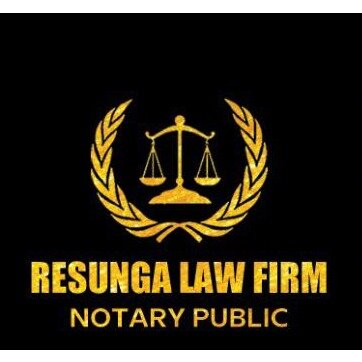Best Civil Rights Lawyers in Nepal
Share your needs with us, get contacted by law firms.
Free. Takes 2 min.
Or refine your search by selecting a city:
List of the best lawyers in Nepal
About Civil Rights Law in Nepal
Nepal, a diverse nation comprising various ethnic groups and cultures, recognizes the fundamental rights of its citizens under its constitution. Civil Rights Law in Nepal is designed to uphold the principles of equality, freedom, and justice, ensuring that every individual can enjoy their rights irrespective of their background. The Constitution of Nepal 2015 guarantees a broad range of civil rights, including rights to life, liberty, privacy, and freedom of expression. The legal framework aims to protect individuals from discrimination and ensures equal protection under the law.
Why You May Need a Lawyer
There are several situations where you might require legal assistance in the field of Civil Rights in Nepal:
- Discrimination: If you face discrimination based on caste, gender, religion, or ethnicity, a lawyer can help you seek justice.
- Freedom of Speech: Legal counsel can protect your right to free expression if you face censorship or legal action for expressing your opinions.
- Right to Privacy: In cases of unlawful surveillance or breach of privacy, a lawyer can advise on the next steps.
- Unlawful Arrest or Detention: If your rights to due process are violated, legal assistance is crucial to ensure your freedom and fair treatment.
- Land Rights: Disputes over land ownership can involve civil rights issues, particularly for marginalized communities.
Local Laws Overview
Nepal’s legal system incorporates numerous laws and regulations aimed at protecting civil rights, including:
- Constitution of Nepal 2015: This is the supreme law, providing fundamental rights and duties, including equal rights for women, protection against untouchability, and rights of minorities.
- Civil Act 2017: A comprehensive legislation covering various aspects of civil rights and liberties.
- Untouchability and Discrimination Act 2011: This act prohibits any discrimination based on caste and promotes equality.
- Right to Information Act 2007: Ensures citizens' access to information held by public authorities.
- National Human Rights Commission Act 2012: Establishes the NHRC to monitor and report on human rights practices in Nepal.
Frequently Asked Questions
What should I do if I feel my civil rights are violated?
You should consult a lawyer specializing in civil rights to assess your situation and provide legal advice tailored to your case.
Can I file a complaint if I face discrimination at work?
Yes, you can file a complaint with the National Human Rights Commission or seek legal action through a lawyer specializing in employment law.
How can I access legal help if I can't afford it?
Legal aid organizations and human rights groups in Nepal may provide assistance at reduced rates or pro bono to those in need.
Are there legal protections for the LGBTQ+ community in Nepal?
Yes, Nepal’s constitution recognizes the rights of the LGBTQ+ community, and there are laws against discrimination based on sexual orientation.
How can I obtain public records or government-held information?
You can file a request under the Right to Information Act to access public records, with assistance from a lawyer if necessary.
What steps can I take against unlawful detention?
Contact a lawyer immediately, who can file a habeic corpus petition to contest the legality of your detention.
What is the punishment for caste-based discrimination?
The Untouchability and Discrimination Act stipulates fines and imprisonment for those convicted of caste-based discrimination.
What rights do indigenous populations have in Nepal?
Indigenous peoples have special rights aimed at preserving their culture, language, and land, as outlined in the constitution and other legislation.
How can I protect my privacy from governmental intrusion?
Legal avenues exist to challenge any unconstitutional surveillance or data collection and to seek reparations.
Can I protest government actions without fear of retaliation?
Peaceful assembly and protest are protected under the constitution, but it is advisable to inform authorities to avoid legal issues.
Additional Resources
For further help regarding civil rights in Nepal, consider reaching out to:
- National Human Rights Commission (NHRC): A governmental body dedicated to monitoring and ensuring the protection of human rights.
- Legal Aid Nepal: Provides legal assistance to those unable to afford representation.
- Centre for Legal Research and Resource Development (CeLRRD): Offers research and resources related to human rights law.
- The Informal Sector Service Centre (INSEC): Monitors human rights across the country and provides valuable reports and data.
Next Steps
If you believe you need legal assistance in civil rights, here is what you can do:
- Gather Information: Collect all relevant documents and evidence pertaining to your situation.
- Consult a Lawyer: Reach out for legal advice to understand your rights and possible legal remedies.
- File a Complaint: If advised by your lawyer, file a complaint with the appropriate authority or court.
- Seek Support: Connect with civil rights organizations for additional support and guidance.
- Stay Informed: Educate yourself about your rights and keep abreast of any changes in legislation.
Lawzana helps you find the best lawyers and law firms in Nepal through a curated and pre-screened list of qualified legal professionals. Our platform offers rankings and detailed profiles of attorneys and law firms, allowing you to compare based on practice areas, including Civil Rights, experience, and client feedback.
Each profile includes a description of the firm's areas of practice, client reviews, team members and partners, year of establishment, spoken languages, office locations, contact information, social media presence, and any published articles or resources. Most firms on our platform speak English and are experienced in both local and international legal matters.
Get a quote from top-rated law firms in Nepal — quickly, securely, and without unnecessary hassle.
Disclaimer:
The information provided on this page is for general informational purposes only and does not constitute legal advice. While we strive to ensure the accuracy and relevance of the content, legal information may change over time, and interpretations of the law can vary. You should always consult with a qualified legal professional for advice specific to your situation.
We disclaim all liability for actions taken or not taken based on the content of this page. If you believe any information is incorrect or outdated, please contact us, and we will review and update it where appropriate.
Browse civil rights law firms by city in Nepal
Refine your search by selecting a city.

















